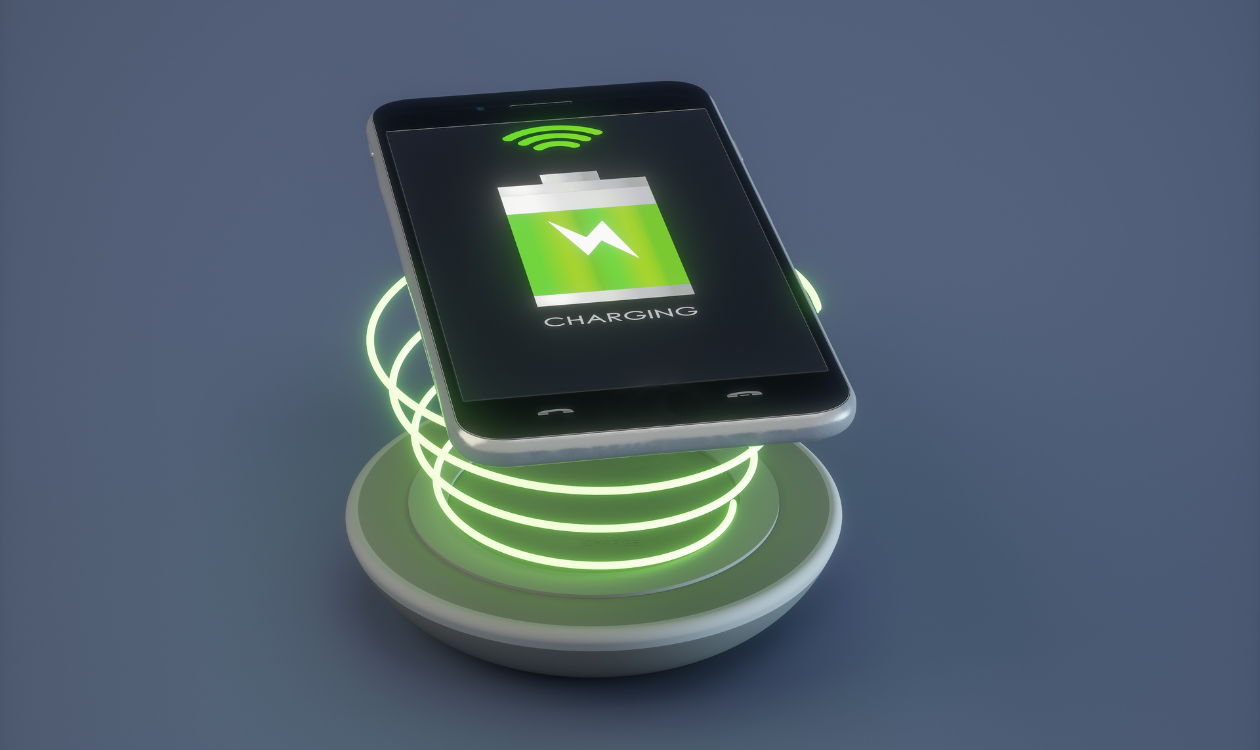In the ever-evolving world of mobile technology, charging methods have advanced significantly over the past few years. Two of the most common charging options are wireless chargers and wired chargers, each offering distinct benefits and drawbacks. As mobile devices continue to be an integral part of our daily lives, choosing the right charging method is essential to ensure convenience, efficiency, and longevity for your device.
In this blog, we’ll dive deep into the differences between wireless and wired chargers, discussing their pros and cons to help you determine which option is the best fit for your lifestyle and needs.
What Are Wireless Chargers?
Wireless chargers use electromagnetic fields to transfer energy between the charger and the device without the need for a physical cable connection. This technology, called inductive charging, typically requires the phone to be placed directly on a charging pad or stand.
Wireless charging is compatible with many of today’s leading smartphones, including models from Apple, Samsung, and Google. The most common standard for wireless charging is called Qi (pronounced “chee”), which is widely supported across the tech industry.
What Are Wired Chargers?
Wired chargers, the traditional method of charging, require a physical connection between the charger and the mobile device. Most modern smartphones come with USB Type-C, micro USB, or Lightning connectors that are plugged directly into the device for power transfer.
While wired chargers have been the default charging method for years, wireless technology has started to make waves as an alternative. However, many users still rely on wired chargers due to their reliability, speed, and versatility.
Advantages of Wireless Chargers
1. Convenience and Ease of Use
Wireless chargers provide a hassle-free experience. You no longer need to deal with untangling cords or wearing out charging ports. Simply placing your phone on a wireless charging pad can power it up quickly and efficiently. This simplicity is especially appealing in places where cords can easily become a nuisance, such as on office desks or bedside tables.
2. Reduced Wear and Tear
One of the key benefits of wireless charging is the reduced strain on your phone’s charging port. Over time, frequently plugging and unplugging cables can cause the port to wear out, leading to connection issues. Since wireless chargers eliminate the need for a cable, you can extend the lifespan of your phone’s hardware.
3. Sleek and Modern Design
Wireless chargers often have a minimalist design that looks more aesthetically pleasing than tangled cords. They come in a variety of styles, such as flat pads or angled stands, which can enhance your home or office decor while keeping your device charged.
4. Safer for Public Spaces
Using public charging ports can sometimes expose your device to hacking or malware, a method known as “juice jacking.” Wireless chargers reduce this risk since there is no direct data transfer via a cable, making them a safer option in public environments like airports or cafes.
Disadvantages of Wireless Chargers
1. Slower Charging Speeds
One of the main drawbacks of wireless chargers is their relatively slower charging speeds compared to wired chargers. While high-end wireless chargers have become faster, they typically can’t compete with the speed of fast-wired charging, especially for devices that support fast charging technologies.
2. Limited Mobility
Unlike wired chargers, wireless chargers require your phone to remain stationary on the charging pad or stand. You can’t pick up your phone and move around easily while it’s charging, which might be inconvenient if you need to use your phone during the charging process.
3. Heat Generation
Wireless chargers often generate more heat than wired chargers due to energy loss during the charging process. Prolonged exposure to heat can potentially affect battery performance and longevity, which is something to keep in mind if you frequently use wireless chargers.
Advantages of Wired Chargers
1. Faster Charging Speeds
Wired chargers, especially those equipped with fast-charging technology, generally offer quicker charging times than wireless chargers. This makes them a preferred option for people who need to charge their devices rapidly or during short windows of time.
2. Better Efficiency
Wired chargers are more efficient than wireless chargers in terms of energy transfer. There is less energy loss in the process, which means less heat is generated, and your device gets charged faster with less strain on the battery.
3. Greater Flexibility
With a wired charger, you can continue to use your phone while it’s charging, making it easier to respond to texts, take calls, or use apps. This added mobility and flexibility can be a significant advantage for people who use their phones extensively throughout the day.
Disadvantages of Wired Chargers
1. Cable Management Issues
The biggest complaint about wired chargers is the hassle of dealing with tangled or broken cables. Over time, charging cables can wear out, break, or fray, making them inconvenient and often expensive to replace.
2. Wear and Tear on Ports
Frequent plugging and unplugging can cause wear and tear on your device’s charging port, leading to connection problems over time. If your charging port is damaged, it may be costly to repair and could potentially shorten the lifespan of your device.
Which Should You Choose?
The decision between wireless and wired chargers ultimately comes down to your personal preferences and how you use your phone. Here are a few key considerations to help you decide:
- If speed is your priority and you often find yourself in need of a quick charge, a wired charger is likely the better option. Wired chargers can rapidly juice up your phone, especially with fast-charging capabilities.
- For convenience and a clutter-free charging solution, wireless charging might be the way to go. It’s a great option for overnight charging or when you’re not in a rush to charge your phone.
- If you’re concerned about wear and tear on your charging port or cables, a wireless charger can help prolong the life of your device by minimizing port usage.
Conclusion
Both wireless and wired chargers have their unique advantages and disadvantages. Wired chargers excel in speed and efficiency, while wireless chargers offer a more convenient and aesthetically pleasing charging experience. Consider your charging habits, lifestyle, and priorities to determine which method suits you best. In many cases, a combination of both charging options might be ideal, giving you the flexibility to choose based on your situation.

